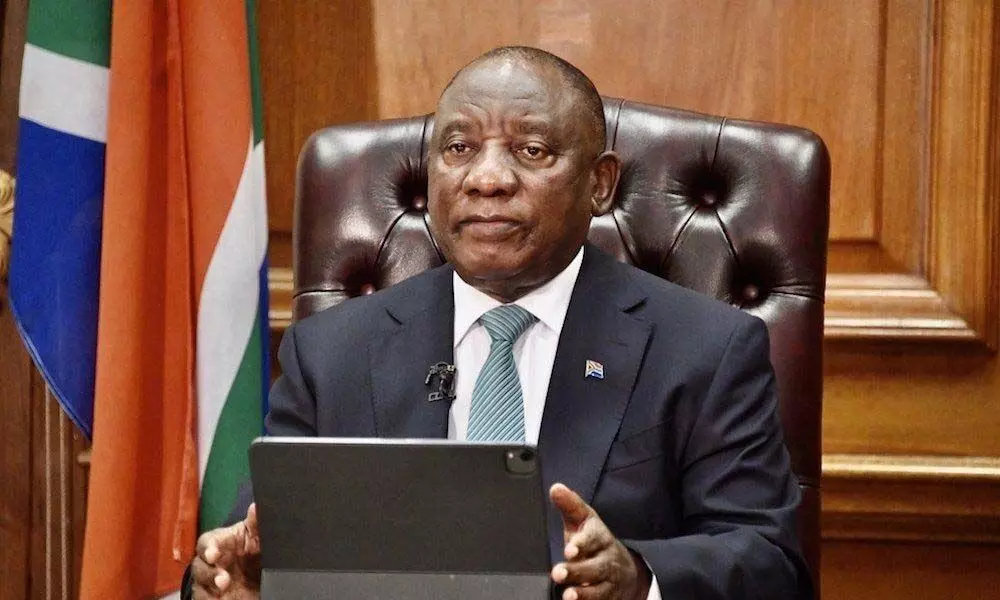Can Ramaphosa turn the tide in South Africa?
The violence stoked by supporters of former president Jacob Zuma has been quashed and Zuma remains in prison. Ramaphosa has a chance to turn his country around
image for illustrative purpose

The violence and looting that have swept through South Africa are a brutal reminder of just how far the country has fallen from the post-apartheid vision of a "rainbow nation at peace with itself." After years of industrial-scale corruption, the State is still dysfunctional, the country's infrastructure creaking and the economy stagnant. The recent anarchy arises from those failures. President Cyril Ramaphosa should heed the message: Broad and deep reform can't wait any longer.
Ramaphosa moved too tentatively in his first three years in power, hampered by divisions within the ruling African National Congress. He was slow to address the mayhem on the streets as well. The former union leader's negotiating skills aren't in doubt — he helped secure democracy three decades ago, and he remains one of the country's most respected politicians. The violence stoked by supporters of former president Jacob Zuma has been quashed (and Zuma remains in prison, where he belongs). Ramaphosa has a chance to turn his country around.
In the longer term, South Africa can't succeed unless Ramaphosa and his successors revive the economy. Even before Covid-19 hit, the per capita growth rate was negative. The country can't realise its potential without higher public and private investment, and that requires a government that helps enterprise to flourish. The economy needs a labor market that works (the pre-pandemic unemployment rate was already close to 30 per cent); a public sector more intent on serving the public interest than its own; and State-owned enterprises less addicted to graft, chronic inefficiency and insupportable debts. Private businesses with plenty to lose if the dysfunction continues can be powerful allies.
Putting all this right will be the work of many years. Ramaphosa needs to promise he'll make a bold start — and be believed.
But he also faces a more immediate challenge. Steps to relieve the country's extreme poverty and destitution are crucial. Following the unrest, Ramaphosa has reinstated a monthly welfare grant of 350 rand ($24) for the poor until March. Up for debate is whether this grant should be increased and made permanent. Any such plan could not rely on borrowing. Public debt is already too high. So it would require savings elsewhere in the budget or higher taxes on those who can afford to pay. Conceivably, this might be politically palatable, if it were tied to a credible commitment to make real progress on promoting growth and investment, and on curbing the depredations of a broken public sector.
To state the obvious, striking any such bargain won't be easy. And there are ways to make it even harder. For instance, Ramaphosa is being urged to pay for his income-support plan with a wealth tax. There's a case for this, to be sure, because economic inequality in South Africa is extremely high. But it would be difficult to administer and politically contentious, and worse, it might inflame fears of outright expropriation — the opposite of what's wanted in a country that needs to promote investment. Squeezing wages in parts of the public sector and raising taxes on higher incomes and inheritance would be the wiser course; these steps won't be celebrated, but they'd be less toxic than a wealth tax.
The more Ramaphosa can persuade the country he's serious, at last, about grappling with the country's problems, the better his chances of striking such a deal. He'll need to convince working South Africans burnt by years of corruption — under Zuma, more than 500 billion rand was stolen from State coffers — that the days of "State capture" are over. He'll need to stress accountability and transparency. And he'll have to grapple with what might be the country's biggest single problem: a failing education system that leaves so many youngsters equipped to do nothing. The teachers' unions will be just one of the many forces aligned against him.
Yet it isn't entirely hopeless. In recent days, communities came together to protect businesses and homes. One horrifying moment seemed to symbolize what's at stake: A desperate mother threw a toddler from a burning building, and the child was caught in the outstretched arms of strangers. Comfortable South Africans have been jolted by the ease with which malls were ransacked and businesses destroyed. Many had failed to recognize the extent of privation and desperation, lately made even worse by the pandemic.
South Africans are newly alert to the need for action, and that gives Ramaphosa an opening. Desperate times invite radical departures. (Bloomberg)

